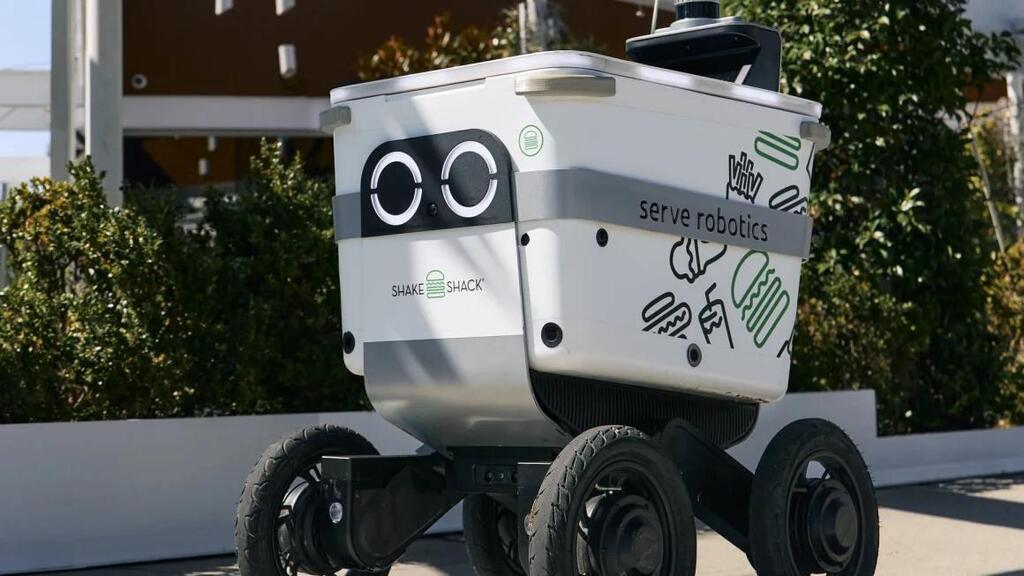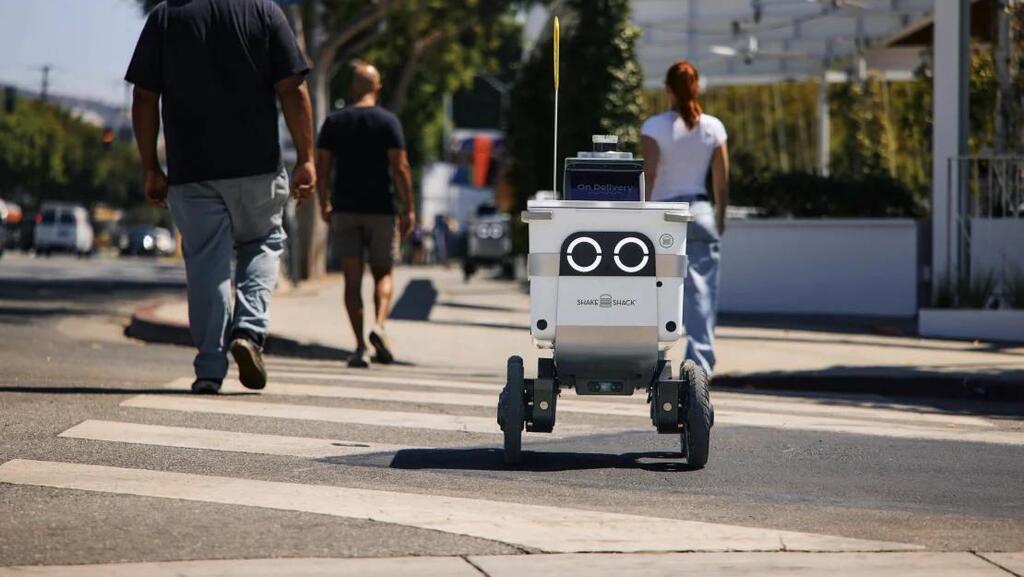Getting your Trinity Audio player ready...
The long lines at the Shake Shack in Tel Aviv may have subsided, but across the world in Los Angeles, the popular burger chain is taking steps to prevent such scenes entirely – and save on costs and labor along the way.
Last Wednesday, the company announced its latest hire: around 2,000 AI-powered robots on wheels that will deliver your burger straight to your door. Unsurprisingly, some of the brains behind this technology are Israeli.
In Shake Shack's ideal world, instead of a delivery person knocking on your door, you'd open it to a cute, four-wheeled machine – something between a Disney shopping cart and a beachside ice cream cooler. This innovation is the result of a collaboration between Shake Shack and the American company Serve Robotics, which, with backing from heavyweights like Nvidia and 7-Eleven, launched robotic delivery services that navigate city sidewalks and are operated via the Uber Eats app. These robots have been making deliveries in Los Angeles since 2022, but this is the first time they're being integrated into a major chain’s operations, programmed to handle short-range deliveries quickly and efficiently.
Here's where Israeli technology comes into play. Serve Robotics uses the connectivity platform from Raanana-based DriveU.auto, ensuring a stable and fast connection between the robots and the cloud, allowing for remote monitoring and control. And when things get tricky, Tel Aviv-based Ottopia provides software that enables real people to take over the robots remotely when unexpected issues arise (like a tourist trying to snatch fries from a delivery – a genuine concern raised by the company during the launch in Los Angeles).
This isn't the first attempt to introduce robots into the delivery world. Restaurants, retail chains and delivery companies have invested heavily in automated delivery solutions in recent years, whether by drones, autonomous vehicles, or, as in this case, robots rolling along the sidewalk. In fact, Uber tried robotic deliveries in Miami with another partner, a project that has since expanded to other cities. Domino’s Pizza attempted to launch delivery robots back in 2021 but eventually reverted to relying on human drivers and service staff.
Drone deliveries have also yet to take off despite backing from giants like Amazon and Walmart, suggesting that companies aren't quite ready to fully replace human workers with automation. However, Shake Shack and Serve Robotics seem determined to push forward and expand their use of robots. And it's not just about avoiding tipping (the company has already clarified that “there’s no need to tip a robot!” – a rather strange concept for Americans).
Businesses today are grappling with rising labor costs, while consumers are contending with the climbing prices of dining out. These robots, with their efficiency and remote controllability, present a solution that reduces costs, cuts down on pollution and traffic congestion and minimizes accidents and fatalities – a seemingly perfect fix for a world where everything needs to happen here and now. So, if we once thought a burger was just meat in a bun, in today's world even our food requires robots to roll toward us, guided by fast connections and monitored by control centers somewhere around the globe.
Serve Robotics plans to add thousands more robots to its services by 2025, and despite the challenges of working in an urban environment like Los Angeles – a car-centric metropolis with high crime rates and sometimes sidewalk-less streets – the robots are successfully completing deliveries more than 99% of the time. The company also plans to expand to other cities, including Dallas, San Diego and Vancouver, Canada. So, the next time you see a robot rolling down the street with a bag of burgers in these cities, remember that it’s not just cost-effective, efficient, and eco-friendly – it also carries a touch of Israeli innovation.




